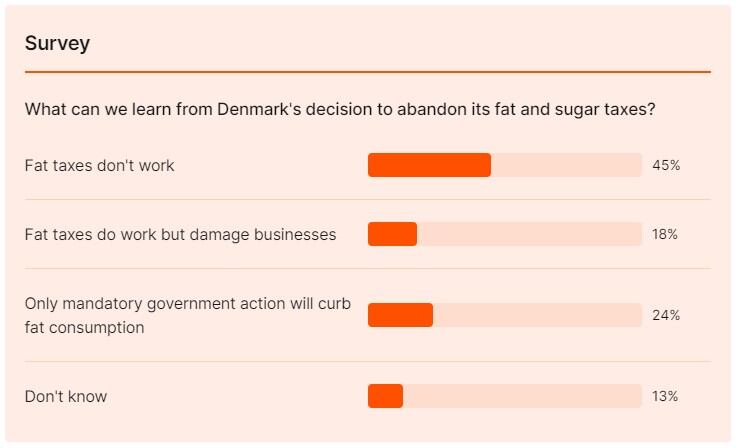The university’s Rachel Griffith, Professor of Economics, studied how a household’s nutritional content changed in response to reduced income and how expenditure was reallocated across food categories.
Data on food purchases were recorded in over 3,000 UK households, during the period 2006–2009. The researchers examined household purchasing trends by a number of factors including: body mass index of the main shopper; social class; family size and employment status.
While the number of calories consumed fell from nearly 2,300 to fewer than 2,200 per day during the recession, lower income households switched purchases away from protein-rich foods to fatty and sugary alternatives.
Ian Pickett, partner with recruitment consultant Drayton Partners, told FoodManufacture.co.uk: “As protein products such as meat, milk, cheese and eggs have gone up in price, consumers have been encouraged to turn to sugar and fats to provide their energy needs at a cheaper price.” His firm hosted a meeting recently to discuss the research.
Own-label products
Rob Seery, a director at Drayton Partners, added: “Due to financial constraints, consumers are adapting their shopping behaviours to make their budgets stretch further. They are bulk buying, downgrading from brands to own-label products and hunting out promotions. As a result, the average supermarket food spend has declined by more than 6% to just £1.45 per person per day."
While the study did not specify the nature of the calorie-rich products in detail, they were likely to include cakes, crisps and biscuits, according to Drayton Partners.
Pickett, former confectionery area manager with Nestlé, said fatty products only sold well when they were associated with product innovation. “One message for food and drink manufacturers is that sugary, fatty foods did well when they were associated with either price promotions or new product development.”
In addition to charting consumers’ changing buying habits, the research offered evidence to support the case for more government intervention to regulate diets, said Pickett.
“The government has been successful at in putting controls in place to tackle fibre and salt. The evidence supports a case for government intervention.”
Drifting super tanker
Consumers’ food purchases had the momentum of a drifting super tanker, he added. “The super tanker is drifting too quickly for an organic transition to its previous course [which did not include increasing consumption of fatty and sugary foods]. If the government wanted to tackle obesity, it would have to introduce policy to achieve results.”
Seery added: “The government has succeeded in reducing salt intake and increasing fibre intake with some reasonably draconian measures. But it’s unlikely that initiatives such as '5-a-day' and the dietary wheel will be enough to change the eating habits of a nation now more inclined to sweet, fatty food.
“We can therefore expect the government to further introduce policies designed to manage the health of the nation and influence the foods we put on our plate.”
The report, ‘Food purchases and nutrition over the Recession’, was funded by the Workforce Mobility Association and the Economic and Social Research Council.
To read the report, click here.
Meanwhile, consumers are risking food poisoning by ignoring food label use-by dates in the recession, according to a survey from the Food Standards Agency.
Researchers found that a third of people were more likely to judge when food is safe to eat by its smell, look or how long it’s been stored, rather than the ‘use-by’ date.
To read the full story, click here.
Research results
- Shoppers reduced food spending but increased purchases of fatty and sugary food
- UK food prices in the UK declined substantially from 1975 to 2007.
- During the recent recession, there has been a significant rise in the price of food, mainly due to the depreciation of sterling, the increased cost of transportation and the rise of world commodity prices.
- UK food prices rose by more than 10% since the recession and have remained high,
- European prices peaked at a 5% increase in 2009 and have since steadily declined.”
Source: Manchester University

